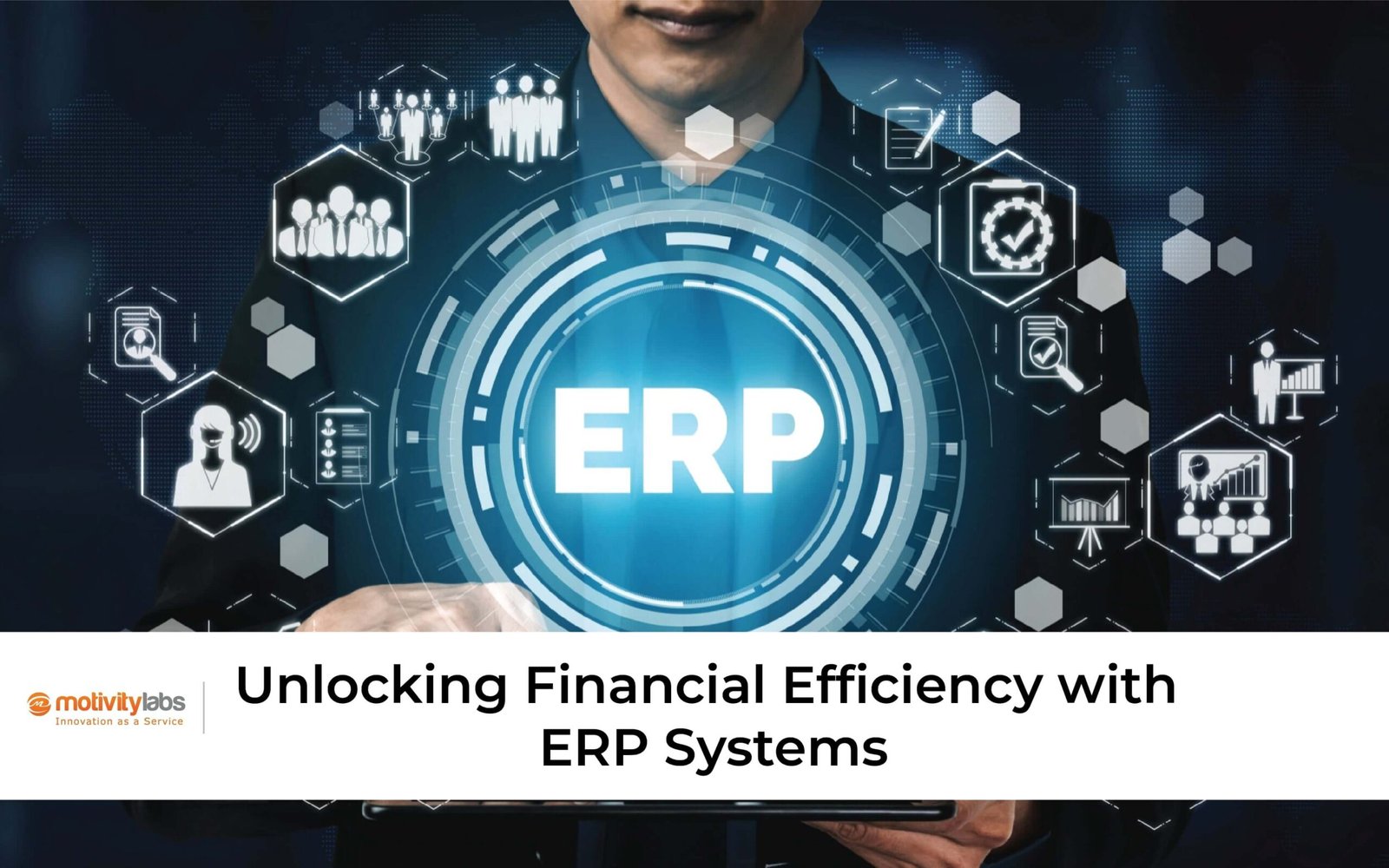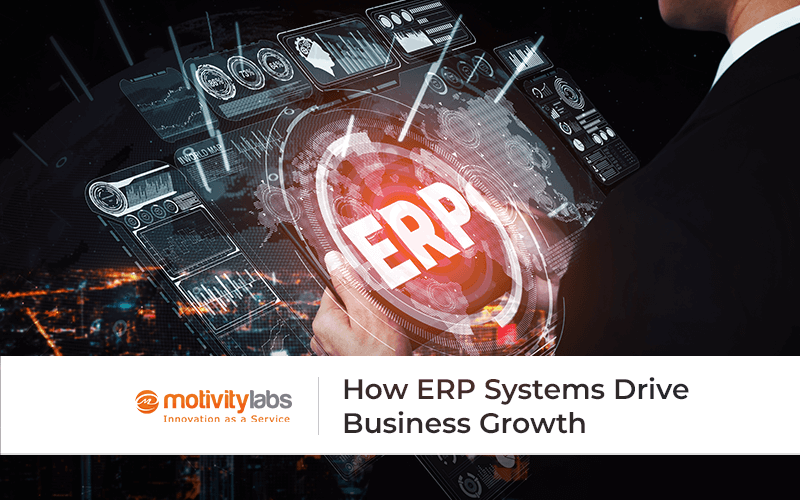Amid a competitive business landscape, organizations are under constant pressure to do more with less. Streamlining operations, cutting unnecessary costs, and making informed financial decisions are critical for long-term success. Amidst this backdrop, ERP systems have emerged as game-changers, particularly in driving financial efficiency across departments.
But what exactly is financial efficiency, and how do ERP systems unlock it?
Read on to explore how an effective ERP solution can transform financial operations, reduce waste, and boost profitability.
Understanding ERP Systems and Financial Efficiency
ERP (Enterprise Resource Planning) systems integrate various business functions into one unified platform. These include finance, procurement, inventory, sales, customer service, and human resources. Instead of relying on fragmented tools and isolated data silos, ERP systems provide a centralized view of business operations.
Financial efficiency is the ability of a business to manage its finances effectively and maximize output from limited resources. It involves streamlining financial workflows, eliminating redundancies, and using real-time data for better decision-making.
When ERP systems are properly implemented, they become a powerful engine for financial efficiency. Let us dive into the key ways they make this possible.
1. Real-Time Financial Insights
One of the most significant advantages of ERP systems is real-time data visibility. Traditional accounting tools often rely on manual entries and batch processing, which delay access to financial insights.
With ERP systems, data is updated instantly across all departments. Finance teams can track cash flow, expenses, and revenue trends in real-time. This enables:
- Faster decision-making
- Accurate forecasting
- Proactive budgeting
- Reduced financial risk
Moreover, stakeholders can access dashboards and reports on demand, eliminating the need for time-consuming reconciliations or outdated spreadsheets.
2. Streamlined Financial Processes
ERP systems automate repetitive tasks like invoicing, payroll, purchase orders, and general ledger entries. Automation reduces manual errors, speeds up processing, and frees up valuable staff time for more strategic initiatives. NetSuite reports that ERP customers experience a 40–60% improvement in order-process efficiency after implementation, demonstrating the tangible benefits of streamlined operations.
Consider the example of generating monthly financial statements without an ERP system. This process often requires gathering data from multiple spreadsheets, validating figures, and coordinating through extensive interdepartmental communication. With an ERP system, this process is centralized and automated, allowing financial statements to be generated with minimal effort. ERP systems also include built-in compliance features that help ensure transactions adhere to regulatory standards. This significantly reduces the workload and burden on internal audit teams.
3. Improved Budgeting and Forecasting
Effective financial planning depends on accurate historical data and predictive insights. ERP systems bring advanced analytics and AI-powered tools to budgeting and forecasting.
Through integrated data analysis, businesses can:
- Identify trends and seasonal patterns
- Predict cash flow shortages
- Allocate resources more effectively
- Adjust plans based on real-time feedback
A proactive approach to financial planning enables businesses to avoid unexpected challenges. It also allows them to capitalize on new opportunities more quickly than their competitors.
4. Enhanced Cost Control
ERP systems provide detailed visibility into cost centers, inventory usage, procurement, and vendor management. This helps finance teams identify inefficiencies and implement cost-control measures.
For instance, a manufacturing company using an ERP system might notice that one supplier consistently delivers late, causing production delays. Armed with this data, they can renegotiate contracts or switch vendors to reduce costs. Similarly, real-time inventory tracking prevents overstocking or stockouts, reducing holding costs and waste.
5. Consolidated Financial Reporting
For organizations with multiple branches or international operations, consolidating financial reports can be a nightmare. Different currencies, local tax rules, and time zones complicate the process.
ERP systems make it easier by supporting multi-entity and multi-currency accounting. They standardize financial data across all locations, ensuring consistency and accuracy. As a result, businesses can generate consolidated reports that comply with International Financial Reporting Standards (IFRS) and local regulations. This simplification of global financial management also enhances investor confidence through greater transparency and accuracy.
6. Better Compliance and Risk Management
Compliance requirements are becoming increasingly complex. To comply with tax obligations and industry regulations, businesses must ensure accurate reporting and timely submission of required documents.
ERP systems come equipped with built-in compliance tools, including:
- Audit trails
- Role-based access controls
- Tax management modules
- Regulatory reporting templates
These features reduce the likelihood of human error and help organizations stay compliant with local and international laws. This minimizes the risk of fines, legal issues, or reputational damage.
7. Faster Month-End and Year-End Closings
Month-end and year-end closings are historically time-consuming. Data must be collected, verified, reconciled, and reviewed, often within tight deadlines.
ERP systems speed up this process by automating much of the work. Transactions are recorded in real time and reconciled continuously. By the time the financial closing date approaches, most critical tasks have already been completed. As a result, finance teams spend less time on manual data entry and more time on analysis, strategy, and value-added tasks.
8. Scalability and Long-Term Savings
ERP systems are designed to grow with your business. Whether opening a new location, launching a new product line, or entering a new market, the ERP platform can scale accordingly.
Financial teams don’t need to worry about outgrowing spreadsheets or implementing multiple software tools. Instead, they can rely on the ERP system to support evolving business needs without major disruptions or additional training.
Over time, this leads to significant cost savings through:
- Reduced software licensing fees
- Lower training costs
- Less reliance on third-party services
- Minimal system downtime
Challenges to Consider
While ERP systems offer immense financial benefits, they are not a silver bullet. Implementing an ERP system can be complex and time-consuming without proper planning. Common challenges include:
- Data migration issues
- Resistance to change
- Lack of user training
- Budget overruns
Unlocking the full potential of ERP systems requires a strategic approach. Organizations must invest in effective change management, choose the right ERP partner, and ensure that implementation aligns with their long-term business goals.
Partnering with Motivity Labs
Unlocking financial efficiency with ERP systems requires the right technology, strategy, and implementation partner. At this point, Motivity Labs becomes a valuable partner.
Motivity Labs has deep expertise in enterprise resource planning. The team helps organizations deploy ERP solutions tailored to their unique business needs. From system selection to post-launch support, Motivity Labs ensures a smooth, value-driven journey toward financial transformation.
Partnering with experts who understand the intricacies of ERP systems enables businesses to operate more efficiently. This collaboration helps eliminate inefficiencies, improve real-time visibility, and support more informed financial decision-making.
Ready to Transform Your Financial Operations?
ERP systems are no longer optional. They are essential for any business striving to achieve operational excellence and maintain strong financial health. If you are ready to elevate your finance department from transactional to strategic, it is time to explore what ERP can do for you.
Let Motivity Labs be your guide in unlocking financial efficiency through cutting-edge ERP solutions.


